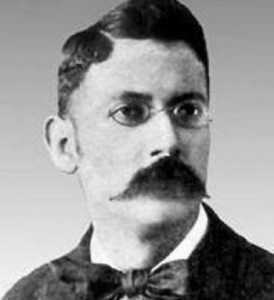
Bonifacio Byrne
*Bonifacio Byrne was born on this date in 1861. He was an Afro Cuban poet.
He was born in Pueblo Nuevo, in Matanzas. He did his studies in Matanzas. Since adolescence, he had a fondness for literature. In 1890, he founded the newspapers La Mañana y La Juventud Liberal. He published his first verse book in 1893. After a youthful period of initiation into modernist poetry, he became, from 1896, the interpreter of the enthusiasms and agony of the Cuban people in the struggle for their independence from the Spanish Crown.
At this time, he had to emigrate to the United States, having published his sonnets in response to the Sunday Mejía shooting. In exile, he devoted himself to separatist work and founded and was secretary of the Revolutionary Club in Tampa, Florida. While there, he worked as a tobacco reader and collaborated with Patria, El Porvenir, and El Expedicionario. Many of his poems were left unpublished or grouped into an anthology. Since the publication in 1897 of the poem Efigies (patriotic sonnets) in Philadelphia, Byrne is considered one of the poets of the Cuban-Spanish War.
He is best-known poem is Mi Bandera (my flag), composed upon returning to Cuba after the end of the Spanish-American War. It expresses his anguish at the uncertainty of the national future threatened by the flag of the United States, which he could see from the boat in which he entered Havana Bay. It was hoisted in the fortress of Morro next to the Cuban flag. He returned to Cuba in 1899. During the Republican term, he was secretary of the Provincial Government of Matanzas and the Provincial Superintendency of Schools. In 1909, he founded the newspaper El Yucayo. He collaborated in La Primavera, El Athenaeum, Diario de Matanzas, El Fígaro, and La Discusión. He was declared the Eminent Son of Killings in 1915.
He won poetic awards at the Floral Games of Sancti Spíritus (1916) and Matanzas (1934). He was a founding member of the Index Group (1935). He was a corresponding partner of the National Academy of Arts and Letters. Raimundo Lazo called him the last patriotic poet of colonial times; he died on July 5, 1936, and was buried in the Necropolis of San Carlos Borromeo de Matanzas.